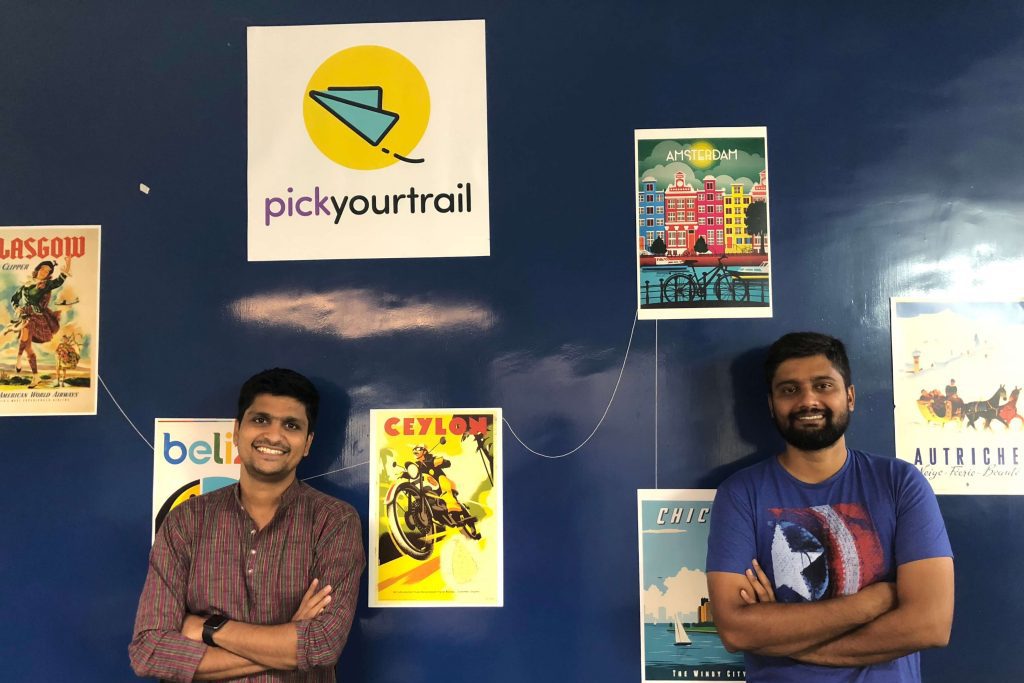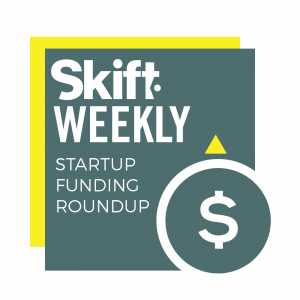Pickyourtrail Raises $3 Million for Vacation-Package Booking: Travel Startup Funding This Week

Skift Take

Travel Startup Funding This Week
Each week we round up travel startups that have recently received or announced funding. Please email Travel Tech Reporter Justin Dawes at [email protected] if you have funding news.This week travel startups announced more than $8 million in funding.
>>Pickyourtrail, an online travel agency, has received nearly $3 million in Series A funding.
Angel investors led the round, including Kumar Vembu, the founder of billing software startup GoFrugal. Pickyourtrail graduated from the Amadeus Next incubator.
The Chennai, India-based Pickyourtrail focuses on selling outbound international travel, where customers can piece together air, hotel and tour packages. Southeast Asian consumers mostly use traditional travel agencies to plot the details of their vacations. This startup hopes to woo them online with an algorithm that matches trip recommendations with personal preferences.
Since its founding five years ago with $1,700 in seed capital, Pickyourtrail has been gaining steam. It ended 2018 having helped plan 8,000 trips. The company, which now has about 90 workers, claims to have been profitable every month in the last 60 months barring one, said co-founder Hari Ganapathy.
>>SensorFlow, a smart energy management startup, has raised $2.7 million in Series A funding.
Private investor Pierre Lorinet led the round. The startup, founded in Singapore in 2016, has raised $3.5 million to date.
SensorFlow, which has 30 workers, aims to make hotels in Singapore, Indonesia, and Hong Kong energy-efficient by applying the smart home trend to hospitality. By using sensors to detect motion and wasted energy, internet-connected devices can help hotels be more efficient with their energy use. The funding will help the company enter new markets in Malaysia, Thailand, Vietnam, Cambodia, and the Philippines.
>>3DEN, which aims to offer co-working, lounge, and nap areas in cities, has raised $2 million in seed funding. It intends to offer services a traveler might expect in an airport lounge, only without the airport.
Investors include b8ta and Graphene Ventures. 3DEN, founded in New York City, will open its first spaces on March 15 at the Hudson Yards complex of residential, office, and retail venues. While you can reserve amenities at the space, consumers don’t book time there. It will be purely a walk-in destination.
Earlier this month, Recharge, a mobile-first online booking service for reserving hotel rooms by the hour, said it was expanding its booking service to offer by-the-hour rentals of short-term spaces in private homes in San Francisco, New York City, and Los Angeles.
>>Bounce, which offers more than 100 locations in New York City, San Francisco, Chicago, Washington, D.C., Los Angeles, and Boston for travelers to store their bags, said that late last year it closed a $1.2 million round of seed funding.
Investors who participated in the round included Structured Capital managing partner Jillian Manus, Seabed Venture Capital, Rob Chesnut, and Michael Hyatt.
The San Francisco-based startup faces competition. Earlier this month, LuggageHero, an international network of rentable storage spaces for traveler’s bags, said it had raised $1.45 million in funding. Other players with similar or overlapping services include Lugless and Vertoe.
Skift Cheat Sheet:
We define a startup as a company formed to test and build a repeatable and scalable business model. Few companies meet that definition. The rare ones that do often attract venture capital. Their funding rounds come in waves.
Seed capital is money used to start a business, often led by angel investors and friends or family.
Series A financing is typically drawn from venture capitalists. The round aims to help a startup’s founders make sure that their product is something that customers truly want to buy.
Series B financing is mainly about venture capitalist firms helping a company grow faster, or scale up. These fundraising rounds can assist with recruiting skilled workers and developing cost-effective marketing.
Series C financing is ordinarily about helping a company expand, such as through acquisitions. In addition to VCs, hedge funds, investment banks, and private equity firms often participate.
Series D, E and beyond These mainly mature businesses and the funding round may help a company prepare to go public or be acquired. A variety of types of private investors might participate.
Check out our previous startup funding roundups, here.





